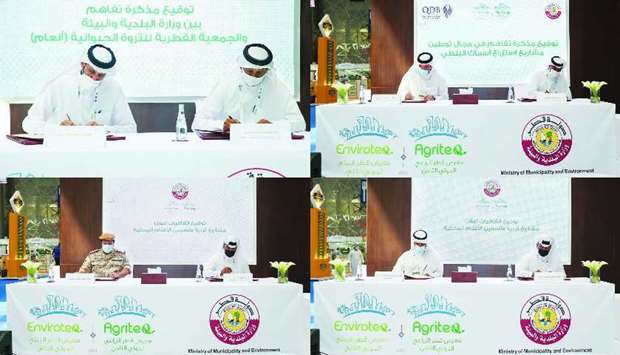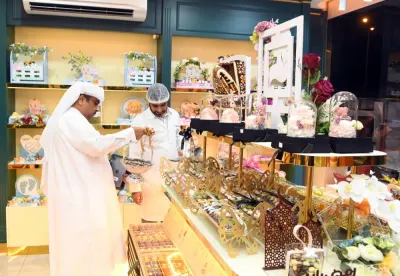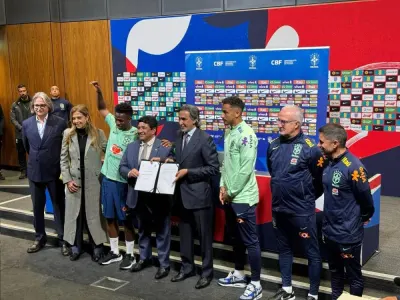*Deals pertain to tilapia production, sheep and goat breeding and fattening, green fodder, etc.
The Ministry of Municipality and Environment (MME) has signed a number of contracts and agreements with the authorities concerned in the country to enhance food security and achieve self-sufficiency in strategic commodities.
The deals were signed on the sidelines of the eighth Qatar International Agricultural Exhibition (AgriteQ) and second Qatar International Environmental Exhibition (EnviroteQ) at the Doha Exhibition and Conference Centre.
The exhibitions conclude on Saturday.
The ministry signed a memorandum of understanding with Qatar Development Bank (QDB) to launch an initiative to encourage the production of tilapia by giving farmers an opportunity to establish productive projects on farms registered in the country, and with concessional financing from QDB.
The initiative includes establishing two projects for the production of tilapia fish with a capacity of about 310 tonnes per project per year, with a total production of about 610 tonnes per year. This will contribute to achieving 70% self-sufficiency with regard to tilapia in the country. These two projects are subject to full technical support from specialists at the MME.
The two projects will give farmers an opportunity to improve their production by taking advantage of the integrated farming system between plants and fish together, relying on fish residues to feed the plants to obtain healthy vegetables that are free of chemicals.
In a statement on this occasion, director of the MME’s Fish Resources Department Abdulaziz al-Duhaimi affirmed the ministry’s keenness to adopt projects that support the programmes of the national strategy for the development of the fisheries and aquaculture sector, and enhance the food security of these products. He noted that the tilapia fish farming projects will directly contribute to developing and supporting food security and increasing local production of these economically viable species.
For his part, QDB executive director (Business Finance) Khalid bin Abdullah al-Mana said this initiative is the result of joint efforts between the MME and the Qatar Development Bank to rely on national energies in the production of this strategic food commodity, to achieve self-sufficiency and reduce dependence on imports.
He pointed out that the QDB seeks, in accordance with its strategy, to achieve a high rate of self-sufficiency in various productive sectors.
It is in close contact with all ministries and competent authorities in the country to find appropriate and effective mechanisms to develop all productive sectors in the country, especially projects related to food security, he added.
Al-Mana stressed that this initiative is the best evidence of the QDB’s continuing journey of developing all economic sectors in Qatar and actively contributing to sustainable development in line with Qatar National Vision 2030.
He added that launching the production of tilapia fish on Qatari farms is part of the many initiatives and programmes launched in this context, which aim to develop the private sector, especially in the agricultural and fisheries sector.
The MME, represented by the agricultural sector, also signed an agreement comprising contracts for nine projects for the breeding and fattening of local sheep and goats.
This has been inked with nine private companies for projects in five complexes: Al Wakra, Abu Nakhla, Al Kharib, Al Khor, and Simsima.
Each project will cover an area of 50,000sqm.
The initiative to establish sheep breeding and fattening projects aims to achieve the highest possible rates of production according to the best international standards, and use the best scientific methods in raising local sheep and goats, as well as the ability to collect male sheep from producing farms in the country and fatten them with a focus on their distinct types.
The projects will use the best environmental technology and methods to achieve the maximum possible efficiency in the use of resources, while ensuring environmental sustainability.
Each project includes establishing the pens necessary for breeding and fattening, a slaughterhouse, and a unit for fermentation of manure, in addition to stores for the production requirements of fodder and other materials.
The fattening projects initiative will achieve a set of goals, the most important of which are increasing the self-sufficiency rate in terms of red meat, making use of farms and traditional farms as a strategic stock for animals producing red meat, creating a permanent outlet for sheep and goat breeders to sell their production for fattening projects, and providing technical and advisory support for breeders.
The MME’s Animal Resources Department director Abdulaziz al-Ziyara explained that the ministry continues to work towards achieving its goals and implementing its plans for increasing the local production of red meat, and stressed that offering these projects to the private sector will contribute to achieving food security and increasing self-sufficiency in this area.
The MME, represented by the agricultural sector, signed an agreement to implement contracts for three agricultural projects to produce green fodder using treated wastewater, with three private companies to produce about 10,000 tonnes per year at a production rate of up to 20 tonnes per year, per hectare each.
Plots of land for these projects have been allocated in three areas: Al-Karaana (with a total area of about 1.5mn sqm), Bu Glaila (with an area of about 2mn sqm), and Aba Al Hiran, with an area of about 3mn sqm.
Projects to produce green fodder using treated wastewater are one of the important to support food security due to the increased demand for the same.
Assistant director of the MME’s Agricultural Affairs Department, Adel Al Keldi al-Yafei, said projects to produce green fodder using treated wastewater aim to cover the needs of the local market, and noted their role in preserving groundwater by reducing dependence on groundwater and moving to use treated wastewater.
The local market’s annual consumption of green fodder is about 215,000 tonnes, while the total production is 115,000 tonnes annually, with a self-sufficiency rate of 54%.
These projects are expected to cover about 10% of the domestic consumption gap, as green fodder production in Qatar will reach about 125,300 tonnes per year.
Meanwhile, the MME and the Qatar Livestock Society (Anaam) signed a memorandum of understanding to launch an initiative to rehabilitate and afforest mobile farms in the country, with the aim of contributing to preserving the environment and intensifying the vegetation cover with wild tree species from the Qatari environment.
Under the initiative, the Qatar Livestock Society will play an awareness and advisory role to educate livestock breeders on the importance of developing nurseries through afforestation and planting wild plants.
The MME, on its part, will provide appropriate wild trees and seedlings as well as technical and advisory support on the methods of cultivation and plant care.
HE the Assistant Deputy Minister for Agriculture and Fisheries Sheikh Dr Faleh bin Nasser al-Thani said that the initiative, launched in co-operation with Anaam, aims to support the ministry’s efforts in promoting environmental sustainability by increasing the green area and developing nurseries.
He explained that the MME seeks, through the signing of the memorandum, to support all initiatives and activities aimed at increasing afforestation, developing vegetation cover and preserving the environment, while stressing the importance of working in partnership with other bodies and associations to develop nurseries and spread awareness among all segments of society.
Assistant undersecretary for Environmental Affairs, Hassan Jumaa al-Muhannadi, said that the launch of this initiative contributes to preserving the environment, mitigating global warming and the effects of pollution, combating desertification and limiting grazing degradation by promoting an increase in vegetation cover and an increase in biodiversity.
Anaam president Mubarak Rashid al-Sahouti noted the role of the Society and livestock breeders in preserving the environment, activating the introduction of environmental awareness into the Anaam’s activities, stressing the importance of the initiative in supporting and developing nurseries in the areas surrounding the farms, which will have a positive impact on environmental sustainability and increasing green spaces.
He also noted the importance of co-operation with the MME on such initiatives to achieve the desired goals.



